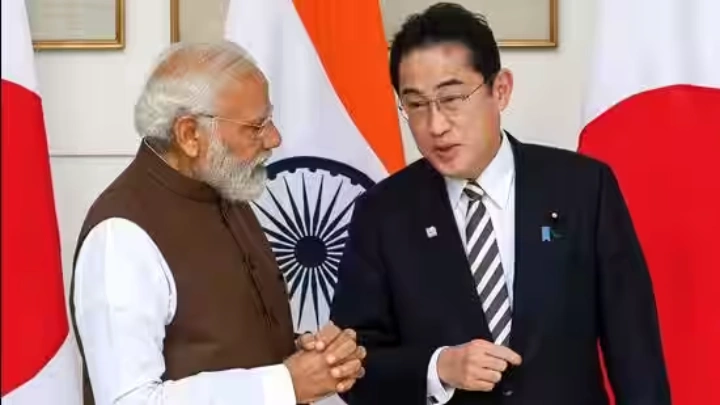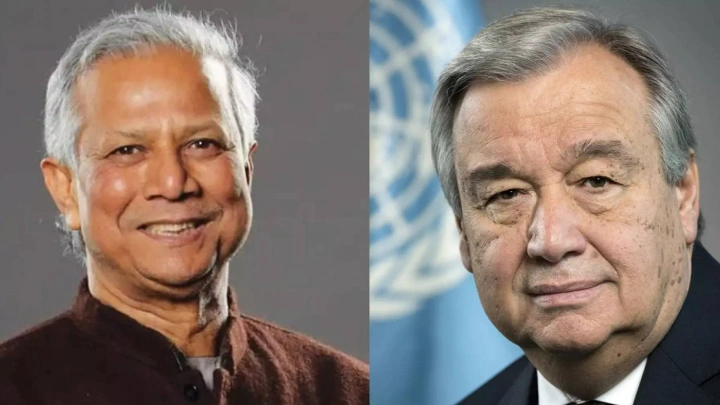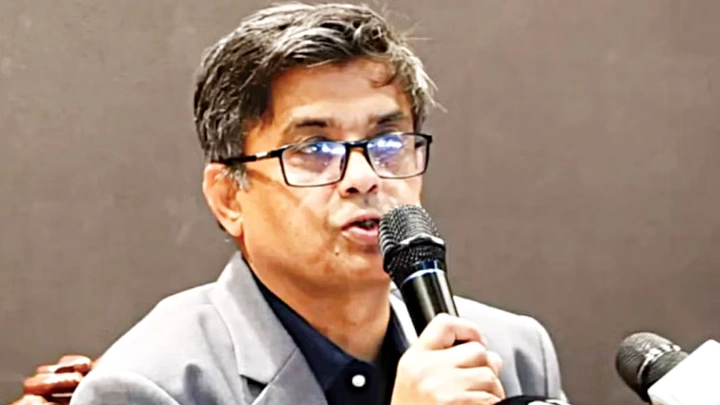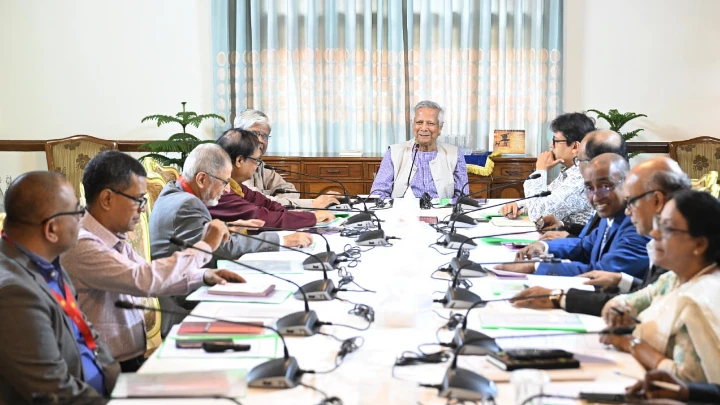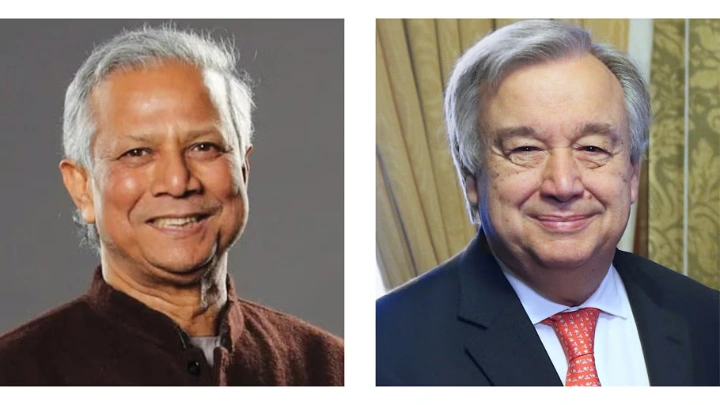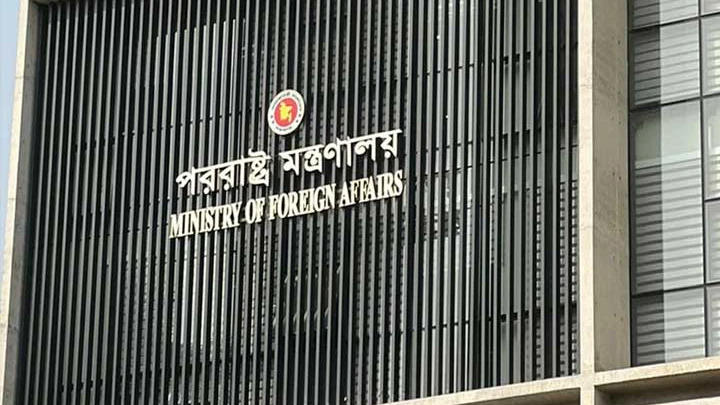In Japanese PM Kishida’s Indo-Pacific Plan, India’s Northeast, Bangladesh is key
Shining BD Desk || Shining BD
Japanese Prime Minister Fumio Kishida said his discussions with PM Narendra Modi focused on the role India and Japan can play when the world is “standing at history’s turning point, fraught with difficulties”
India and Japan on Monday discussed steps to strengthen cooperation in security, trade and technology as Japanese Prime Minister Fumio Kishidaunveiled a new plan for a free and open Indo-Pacific that envisages India as an “indispensable partner” for preventing coercion and upholding a rules-based order.

Prime Minister Narendra Modi with Japanese Prime Minister Fumio Kishida at Hyderabad House in New Delhi on Monday (HT Photo/Raj K Raj)
The Ukraine crisis and coordination between India’s G20 presidency and Japan’s G7 presidency were part of discussions between Prime Minister Narendra Modi and his visiting Japanese counterpart. Both leaders agreed on the importance of including views of the Global South in the G7 and G20 processes.
The two sides signed an agreement on the fourth tranche of a loan from the Japan International Cooperation Agency (JICA) worth 300 billion yen ( ₹18,800 crore) for the Mumbai-Ahmedabad high-speed rail. Modi told a joint media interaction that both sides are “progressing fast” on the project.
Strengthening the India-Japan partnership, which is based on respect for rule of law, promotes peace and stability in the Indo-Pacific, Modi said. He added the two leaders reviewed progress in bilateral ties and discussed collaborating on defence equipment and technology, trade, health, and digital partnership.
“We had a fruitful discussion on the importance of reliable supply chains in semiconductors and other critical technologies. Last year, we set a target of Japanese investment of five trillion yen in India in the next five years...It is a matter of satisfaction that there has been good progress in this direction,” Modi said, speaking in Hindi.
Kishida said his discussions with Modi focused on the role India and Japan can play when the world is “standing at history’s turning point, fraught with difficulties”. The G7 Summit to be hosted by Japan in May will focus on upholding international order based on rule of law, and the two leaders concurred on the need for close cooperation for the successful hosting of the G7 and G20 Summits, he added. Modi also accepted Kishida’s invitation for India to attend the G7 Summit as a guest country.
Though both sides refrained from saying so in public, the challenge posed by China’s aggressive actions was part of the discussions. Asked at a media briefing whether this figured in the talks, foreign secretary Vinay Kwatra replied: “They [leaders] spoke about the challenges that we face in the region and how India and Japan and other like-minded countries can work together to address those challenges and cooperate in the wider expanse of the Indo-Pacific.”
The centrepiece of Kishida’s visit was the Sapru House Lecture, in which he laid out Japan’s “New plan for a free and open Indo-Pacific – Together with India as an indispensable partner”. The address was built on the historic speech by late former premier Shinzo Abe in India’s Parliament in 2007, which spoke of India and Japan nurturing the coupling of the Indian and Pacific Oceans to ensure freedom and prosperity.
Kishida laid out four new pillars for cooperation for a Free and Open Indo-Pacific or FOIP – principles for peace and rules for prosperity, addressing challenges in an Indo-Pacific way, multi-layered connectivity, and extending efforts for security and safe use of the sea to the air.
He outlined practical steps for expanding cooperation in food security, climate change, global health and cybersecurity. In the context of connectivity, Kishida said Japan will promote the “Bay of Bengal-Northeast India industrial value chain concept” with India and Bangladesh for the growth of the entire region.
Noriyuki Shikata, cabinet secretary for public affairs in Japan’s PMO, said Tokyo will look at projects to improve connectivity between the Indian and Bangladeshi economies and work on getting more Japanese companies to invest in the region. Cooperation on Myanmar is “difficult to promote” in the current situation, whereas Japan is looking at an economic partnership agreement with Bangladesh, he said.
Without directly referring to China, Kishida emphasised in his speech that Japan’s new plan is aimed at opposing the use of force to unilaterally alter the status quo, defending rule of law, countering economic coercion, and creating connectivity that doesn’t rely on one country.
Kishida painted a central role for India in almost all aspects of this plan, which he referred to as “our FOIP”.
He said: “Our FOIP needs to be undertaken together with various countries and stakeholders. Japan will strengthen coordination with the US, Australia, [South Korea], Canada, Europe and elsewhere. Of course, India is indispensable.”
Both in the speech and his talks with Modi, Kishida denounced Russia’s invasion of Ukraine. “I reiterate that Japan strongly condemns Russia’s aggression against Ukraine and will never recognise it. Prime Minister Modi too expressed to President Putin that ‘today’s era is not of war’,” he said in his speech.
Shikata said Kishida put forward his views on the Ukraine crisis in a “straight-forward” manner and said India and Japan should not condone any unilateral change of status quo anywhere, including Asia. The two leaders “concurred on the importance of maintaining and strengthening the international order based on rule of law” and on their common responsibilities in this context at the G7 and G20, Shikata said.
Kishida also acknowledged “considerable discrepancies in the attitudes across various countries towards Russia’s aggression”. Shikata said it is essential for Japan to engage with the Global South to see “where we can find common ground”.
Shining BD

